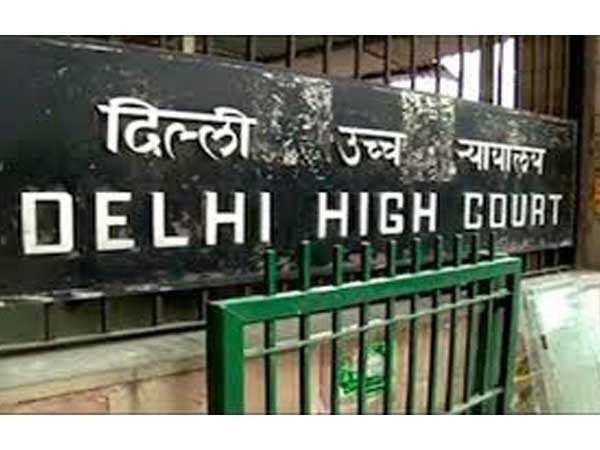Elections see tough fight between Left Unity and ABVP, several key issues raised during presidential debates

Image Courtesy: The Tribune
The Jawaharlal Nehru University students’ Union elections held on September 6, 2019 saw an overwhelming presence of students. A total number of 5762 votes were cast, which comprises a whopping 67.9 percent of the students’ body. After several disruptions in the counting process, it was completed merely a few hours back but the Delhi High Court has ordered a stay on the announcement of results. The petitions were filed by JNU students Anshuman Dubey and Amit Kumar Dwivedi and one of their grievances raised by a petitioner is that the election commission of the university has reduced the number of councillor seats from 55 to 46.
However, the students alleged that there were efforts to “subvert the mandate of students.” Reportedly the election process was stalled “keeping in mind the safety of the ballot boxes that carry the mandate of students.” Students say that the administration tried to interfere in the counting process by trying to intervene through GRC. They have also alleged that there has been a considerable time lapse of more than nine hours in the commencement of the counting process.
The JNUSU election committee accused the Dean of Students for interfering in the election procedure by entering the election venue when the first phase of the election was underway. Of a total of 8,488 students who registered for voting, 5,762 students cast their votes yesterday.
In 2017 and 2016 the voter turnout was 59 percent, while in 2015 the polling percentage was 55 percent. In 2013 and 2014 the turn out for the union election voting was 55 percent and in 2012 the turnout was 60 percent.
Regarding the release of the election results, the High Court of Delhi has ordered a stay until September 17, until the court will pursue the matter again. The High Court stated that it is directed that the declaration of the election results will be subjected to further orders which will be passed by the court. The university is also directed not to notify the results until the next date of the hearing.
Fourteen candidates contested in the Jawaharlal Nehru University Student Union Elections. JNU election Committee chairperson Shashank Patel said that the chairman of the university’s grievance redressal cell who is also the Dean of Students Affairs interfered in the election procedures by coming inside the polling venue, adding that it is a clear violation of the Lyngdoh Committee recommendations and also the high court order. A statement has however not been made on the action to be taken by the election panel on the violation.
The JNUSU had made an appeal to the students, “We request the student community of JNU to ensure the smooth conduct of JNUSU elections. We appeal to students to assemble at SL-SIS lawns at 10 AM to support the Election Committee and secure the safety of our ballot boxes. We must not forget last year where with the support of the JNU admin, ABVP booth captured the counting hall for 17 hours by assaulting JNU EC and JNU Security. Lets once again stand united like last time to secure our JNUSU and our mandate!”
The elections are being watched for the tough fight between candidates from different students groups. In a key development for this year’s alliance, all the four left leaning students’ groups active on the campus, have formed a pre-poll alliance. . Left Leaning Students Groups i.e. Students Federation of India (SFI), Democratic Students’ Federation (DSF), All India Students Association (AISA) and All India Students’ Federation (AISF) have joined hands to contest the elections. Their key opponent in elections is RSS-affiliated Akhil Bharatiya Vidyarthi Parishad (ABVP).
This year’s presidential debates saw some key issues being raised by the candidates. Some of these are abrogation of Article 370, the constitutional provision granting the state of Jammu and Kashmir a special status, the Amazon fires, NRC high fees charged for professional courses like MBA and engineering programmes, freedom of speech on campus and attacks on minorities. The names of the students’ candidates were announced on August 28, 2019 by the JNU Students’ Union Election Committee. The SFI unit president was also allegedly attacked by ABVP members.
ABVP also has fielded candidates for all posts. Reportedly, the group claims that it has ensured that Rs. 91 crore from the DONER Ministry was allocated for the Placement Cell. Apparently, the group is demanding for sports quota in admission, access to libraries and new hostel for students. The groups is also focussing on a new campus for engineering and management students on campus.
On the other hand, the Congress affiliated NSUI (National Students Union of India), which saw its vote share dwindle in the recent union polls, has fielded a single candidate for the Presidential post. NSUI’s Presidential candidate Prashant Kumar said that NSUI is aligned with the larger issues faced by the students on campus and therefore it has decided to only field candidate for President’s post while backing candidates from other like-minded groups (BAPSA and the CRJD) for other posts. Among the key issues highlighted by him, he cited academic autonomy and freedom of speech as the primary issues for NSUI in this year’s election.
Priyanka Bharti of the Chhatra RJD contested for President’s post while Rishipal Yadav, who is visually challenged, will contested for the post of Vice President for the students group. Birsa Ambedkar Phule Students’ Association (BAPSA) —has fielded two candidates for the posts of the president and the general secretary.
